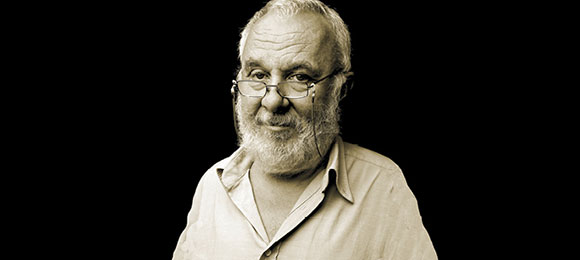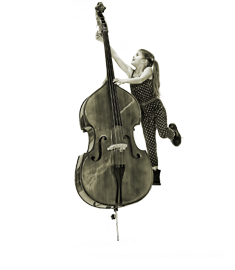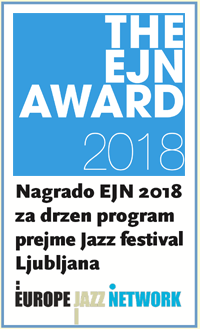Lecture
Lecture
SAT / 30 Jun
12.00: A Night in Tunisia or The Hidden Link: Jazz and the music of Islam
Lecture by: Francesco Martinelli
M3, 4, Free tickets
Conventional jazz stories mention the African influence on the birth of jazz, usually linking it to rhythm and percussion. For the European ear, drums represent rhythm, a substrate in European composed music. But in most African traditions, the music itself is generated by the rhythm, creating polyrhythms that cannot be notated, as the western subdivision between rhythm, melody and harmony cannot apply. In the European creational myths, the Universe is created by word; in Africaa, by the vibration of the primordial drum.
Even the phrase “african music” does not make sense, unless you want to use the same logic for Europe, calling “European Music” anything from Abba to Beethoven, from Monteverdi to Sex Pistols. There are many different traditions in Africa, not necessarily percussive, including purely vocal polyphony, strings and winds in all possible combinations. Not accounting for the huge differences in “African music” we cannot understand “African-American Music”.
When the European powers started the Atlantic Slave Trade in order to provide free labour to exploit the new territories conquered in the Americas, almost a third of the African continent had been totally or in part Islamized. From Egypt and Sudan to Morocco and Tunisia, along the coast and across the desert, tribes and kingdoms converted, establishing Muslim dynasties, including the Almoravids and other Moors who dominated the Iberic peninsula for half a millennium. The rulers were African and Muslim, and their music was played by masters coming from the court of Bagdad.
Despite the acknowledged importance of the Carolinas and Georgia for African cultural survival, jazz historians have very little investigated these connections. Calling generically “African” any influence in the origins of jazz cleverly obscures all differences and developments in Africa’s different regions, and assuages post-colonial anxieties on the subject.
The lecture will include analysis of a series of key unexplained words in jazz history, connected in a repeated and meaningful scheme to Arabic words; a discussion of slave narratives providing the context for uninterrupted transmission of Islam in USA since Slavery; listening to different recordings spotlighting parallels betwen West African music and blues, as well as more open Eastern inspirations after the II World War.
Francesco Martinelli
Francesco Martinelli worked since the 70’s as a cultural promoter of jazz in Italy organizing concerts, writing articles, giving lectures and translating books. Between 1976 and 1983 co-promoted the Pisa International Jazz festival, with performances of Art Ensemble of Chicago, Anthony Braxton, Cecil Taylor, Max Roach, Sun Ra, Air, Steve Lacy, Evan Parker, Alexander von Schlippenbach and many others. In the following years he organized many other events including La Nuova Onda, dedicated to the new Italian jazz of the 80s, the Italian Instabile Festival, and An Insolent Noise.
As a journalist after contributing to musiche, Musica Jazz, World Music and Il Giornale della Musica currently writes about Traditional musics for the British magazine Songlines.
As a discographer published monographic volumes of Anthony Braxton, Evan Parker, Joelle Léandre and Mario Schiano. Co-produced discs recorded live at the Pisa International jazz festival as well as News from the 70’s, an anthology of Anthony Braxton private tapes.
As a translator curated the Italaian editions of Leo Smith’s and Derek Bailey’s books, as well as another ten volumes including Ted Gioia’s History of Jazz and Standards, Conversations with Steve Lacy, and Spirits Rejoice! about Albert Ayler.
Teaches Jazz History at the Siena Jazz University, at the Mascagni Conservatory in Leghorn, and at the Trento Conservatory. For Siena Jazz coordinates the Jazz Center Studies “Arrigo Polillo”, the largest jazz archive in Italy and one of the most important in Europe.
After teaching for several years at Bilgi University in Istanbul still cooperates with Pozitif Productions as well as the Culture Foundation in Izmir for the European Jazz Festival and the Museum of Traditional Anatolian Instruments at Muziksev.
After several years of research about Jean-Michel Basquiat’s King Zulu he’s been invited to cooperate to the Exhibition “Boom For Real”, Basquiat and jazz, at Barbican in London in Fall 2017.
He’s currently coordinating a huge international project within the activities of the Europe Jazz Network to produce a collective volume about history of jazz in Europe due out in september 2018.


